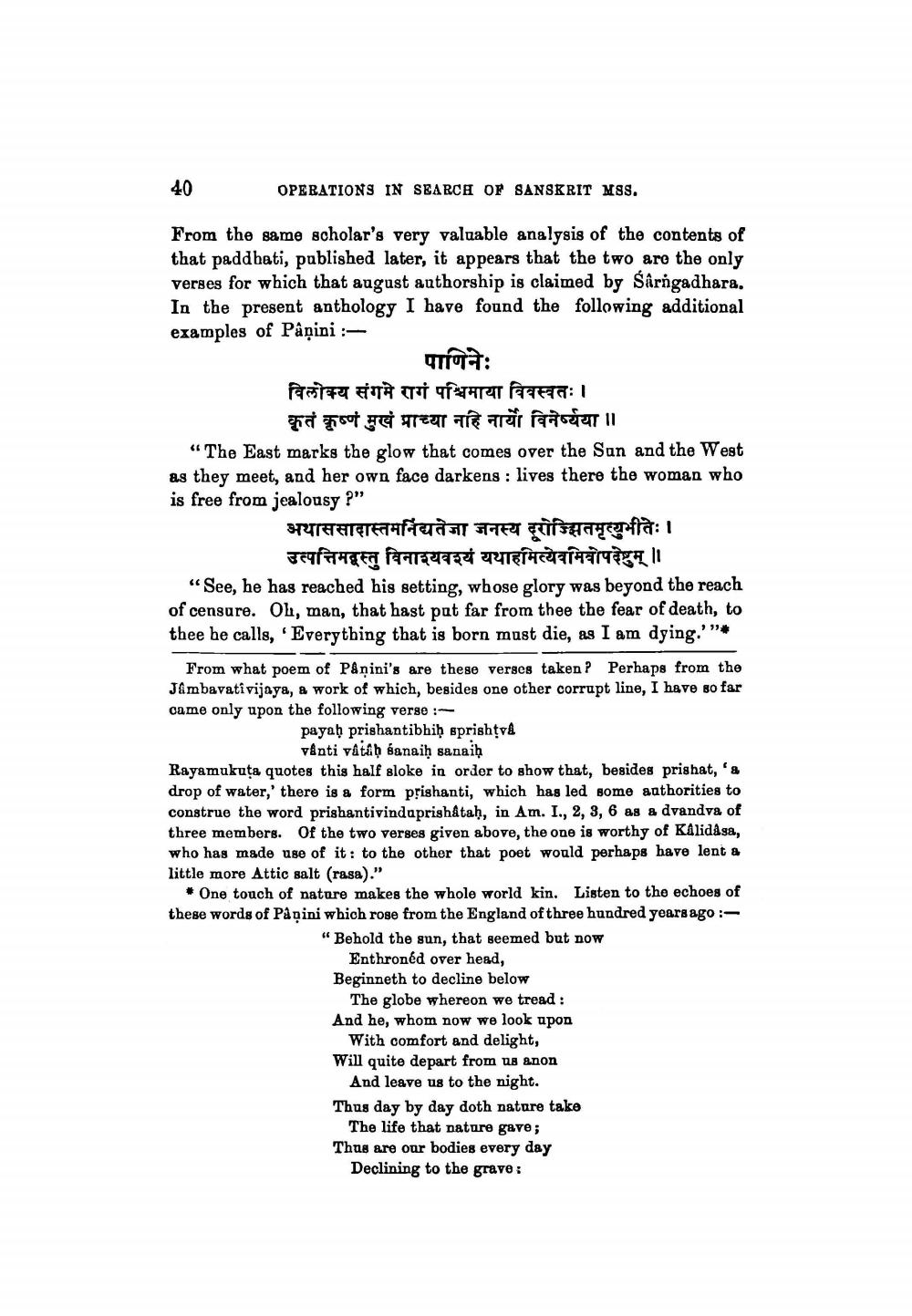________________
40
OPERATIONS IN SEARCH OF SANSKRIT MSS.
From the same scholar's very valuable analysis of the contents of that paddhati, published later, it appears that the two are the only verses for which that august authorship is claimed by Śârngadhara. In the present anthology I have found the following additional examples of Pânini:
पाणिनेः
विलोक्य संगमे रागं पश्चिमाया विवस्वतः ।
कृतं कृष्णं मुखं प्राच्या नहि नार्यो विनेर्ष्यया ॥
"The East marks the glow that comes over the Sun and the West as they meet, and her own face darkens: lives there the woman who is free from jealousy ?"
अथाससादास्तमनिंद्यतेजा जनस्य दूरोज्झितमृत्युभीतेः । उत्पत्तिमद्वस्तु विनाश्यवश्यं यथाहमित्येवमित्रोपदेष्टुम् ॥
"See, he has reached his setting, whose glory was beyond the reach of censure. Oh, man, that hast put far from thee the fear of death, to thee he calls, 'Everything that is born must die, as I am dying.'"*
From what poem of Panini's are these verses taken? Perhaps from the Jambavativijaya, a work of which, besides one other corrupt line, I have so far came only upon the following verse :
payaḥ prishantibhiḥ sprishtva vanti vataḥ sanaiḥ sanaiḥ
Rayamukuta quotes this half sloke in order to show that, besides prishat, 'a drop of water,' there is a form prishanti, which has led some authorities to construe the word prishantivinduprishâtaḥ, in Am. I., 2, 3, 6 as a dvandva of three members. Of the two verses given above, the one is worthy of Kalidasa, who has made use of it: to the other that poet would perhaps have lent a little more Attic salt (rasa)."
*One touch of nature makes the whole world kin. Listen to the echoes of these words of Pâqini which rose from the England of three hundred years ago :
"Behold the sun, that seemed but now
Enthronéd over head, Beginneth to decline below
The globe whereon we tread : And he, whom now we look upon With comfort and delight, Will quite depart from us anon And leave us to the night. Thus day by day doth nature take The life that nature gave; Thus are our bodies every day Declining to the grave:




